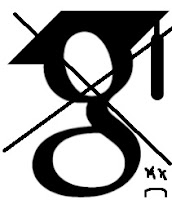Welcome new students to my research blog and the class LBSU 302: Information Fluency and Academic Integrity. My name is John Macomber and I am
your instructor this semester. I have taught this course for two years online and in hybrid format and every semester, with your help, I have been able
to improve the courseroom. We have a very full classroom this semester and are
at the maximum capacity of 35 students. Beyond Blackboard and the assignment
PDFs, please use this site as a frame of reference or how to guide to complete
your work. If anything seems unclear please notify me and we can discuss it as
a class in many case it is very possible that others in the class may have the same
question.
Blog replies
This blog is also a starting point to direct you to your peers blogs which will be necessary in upcoming assignments when you respond to your classmates posts. I recommend that each week that replies are required, you respond to someone you have not responded to before. This will ensure our class conversation circulates throughout our digital classroom.
This blog is also a starting point to direct you to your peers blogs which will be necessary in upcoming assignments when you respond to your classmates posts. I recommend that each week that replies are required, you respond to someone you have not responded to before. This will ensure our class conversation circulates throughout our digital classroom.
Thank you and good luck in your future research
John Macomber
















